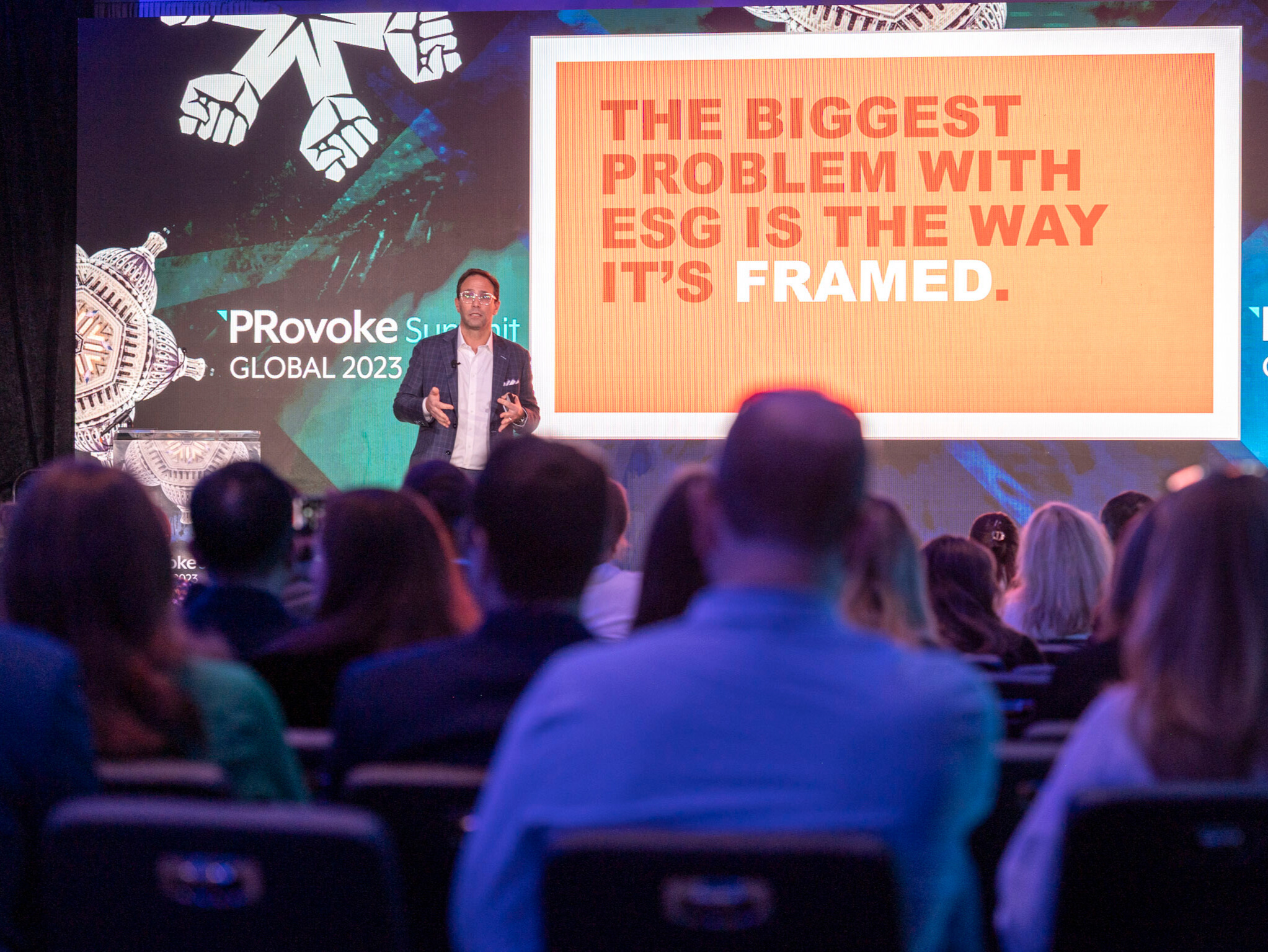Zhao Lu 09 Nov 2023 // 4:36PM GMT

WASHINGTON, DC — In a thought-provoking presentation at today’s PRovokeGlobal, language strategy firm maslansky + partners’ CEO, Michael Maslansky, made a compelling case for retiring the term 'ESG', asserting that it hinders rather than aids the cause.
Maslansky, drawing on his firm’s extensive experience with various Fortune 500 companies, emphasized the critical role of language in communicating complex ideas. He argued, “It’s not what you say that matters. It’s what your audience hears.”
The central point of contention was the framing of ESG. Maslansky challenged that the term itself is an “empty term” that lacks “embedded meaning.” Based on extensive studies with over 7,000 interviews and nine focus groups, He revealed that only 10% of Americans are familiar with the term.
Maslansky presented findings from another study, where 80% of the surveyed expressed discomfort with the term “dihydrogen monoxide” until they realized it was just water, showing that unfamiliar terms tend to draw negative inferences.
The speaker went on to criticize the moral framing of ESG language, highlighting the divisive nature of moral debates in today’s environment. “We live in an environment where we don’t all agree on the moral terms of the debate or on the same morality or values,” Maslansky explained.
He proposed a shift from moral to business terms that link ESG to financial materiality, citing higher favorability and reduced polarization shown by survey participants.
Alternatively, Maslansky advocated for discarding the term ESG entirely, urging to readopt the phrase “responsible business.” He argued, “ESG as a term needs to go away. It is not helping the cause. In fact, in many ways, it is holding us back.”
Maslansky presented statistics indicating that reframing ESG as responsible business garnered increased support across party lines.
“Across the political spectrum, there is a sense that responsible businesses are going to deliver better outcomes for clients, customers, and employees. And they’re gonna succeed financially,” he suggested.
Maslansky concluded the presentation by outlining three core principles for effective communication: making actions real, fitting actions to the brand, and delivering value, not values.
He stressed the importance of closely connecting actions to the business, using inclusive accessible language to a broader audience, and demonstrating value, “If you can’t tell a clear story about why your business is taking this action, you probably shouldn’t be taking the action.”
“What we're saying here is to focus on doing the right thing, talking about why it is connected to your business, as opposed to making a bigger, broader statement about the ‘why’ that is connected to values that not everyone might agree with.”



































.jpg)

















